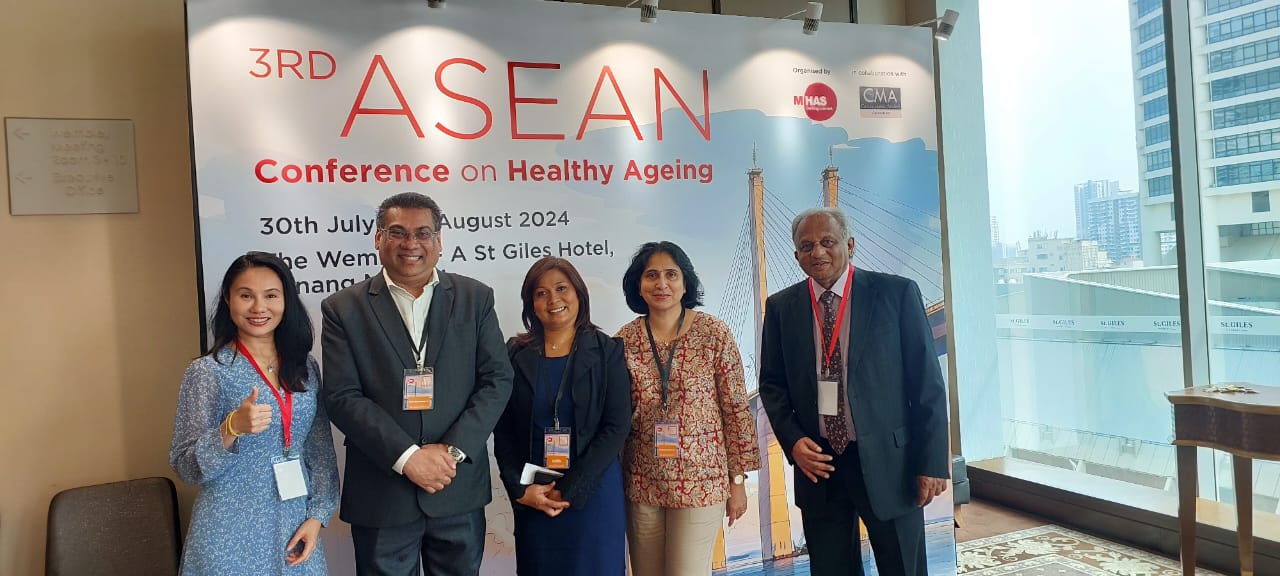All need to be together in facing Malaysia’s aged nation status
Both the public and the private sector need to come together now in one voice to meet the challenges of Malaysia attaining the status of an aged (old) nation by 2030.
The voice is to ensure that the challenges are met effectively and most importantly compassionately for both the seniors and their caregivers as well as families, said Health Minister Datuk Seri Dr Dzulkefly Ahmad.
The status of an aging society means healthcare, jobs and the socio – economic aspects need to undergo swift changes to accommodate that 15% of Malaysians are old and need special care to continue enjoying some form of quality living in the next six years.
The consolation is that the 10 – member Asean regional countries including Malaysia, are facing the same challenges of growing old rapidly and there are lessons that each other can share to buffer the consequences, said Dzulkefly.
“We are just now returning to post-pandemic normalcy. No doubt, many lives were saved by the vaccines, but the one lesson we acquired from the pandemic is that pre-existing poor health, especially in the elderly, was catastrophic when faced with a grave challenge like Covid – 19. Although, we cannot anticipate these rare ‘black swan’ events, we must work hard to weather these unforeseen crises by ensuring that every citizen achieves and maintains his or her peak health.”
The Amanah leader said this in his keynote address at the Third Asean Conference of Healthy Ageing with the theme of “Ageing Successfully – Equitably, Actively and Naturally,” which is now held at the St Giles – Wembley Hotel in George Town, Penang.
His address was read out by Dr Mohd Safiee Ismail, the Ministry’s family health development department director, who was also present as a participant.
Present was organising chair, who is the Malaysian Healthy Ageing Society (MHAS) president Professor Dr Shahrul Bahyah Kamaruzzaman, veteran hotelier Datuk Gulab Mahatam Rai, who will assume the MHAS Penang branch pro – tem president post and Michelle Ann Richards, who is an organising committee member.
According to Dzulkefly, the old approach towards treating the old when they are only sick needs to be revised, stressing that a fundamental change towards caring for aging is needed, perhaps with a more holistic approach towards senior living.
The Asean conference was a forum of discussions on how the old paradigm needed to be shifted to a more integrated and preventive care model, and focused on changing cultural attitudes towards ageing, cultivating age-friendly environments, creating responsive healthcare systems and providing long term care and support essential to living with dignity and essentially, to age successfully, stressed the minister.
Meanwhile, Shahrul disclosed later that Penang was selected by the MHAS to become an Age-Friendly City by December next year.
At present, preparations are in full gear to fulfil the eight frameworks outlined by the World Health Organisation (WHO) to become an Age-Friendly City.
Penang has been chosen as the pilot project as the state has the second highest ageing population with the society appointed as a consultant to the Penang government.
The eight frameworks, which included health, outdoor spaces, employability, social participation and transport, among others, to ensure the success of the Age-Friendly City project in Penang.
“The initiatives under all these frameworks have started with the help of various stakeholders. Once we are able to fully fulfil the frameworks, then Penang can be declared an Age-Friendly City. We expect that to be in December next year,” she said.
Besides Penang, Ipoh and Taiping also embarked on the Age-Friendly City project.
However, the progress was delayed due to the pandemic, she noted.
Other cities mooted included Sibu (Sarawak) and Petaling Jaya (Selangor).

